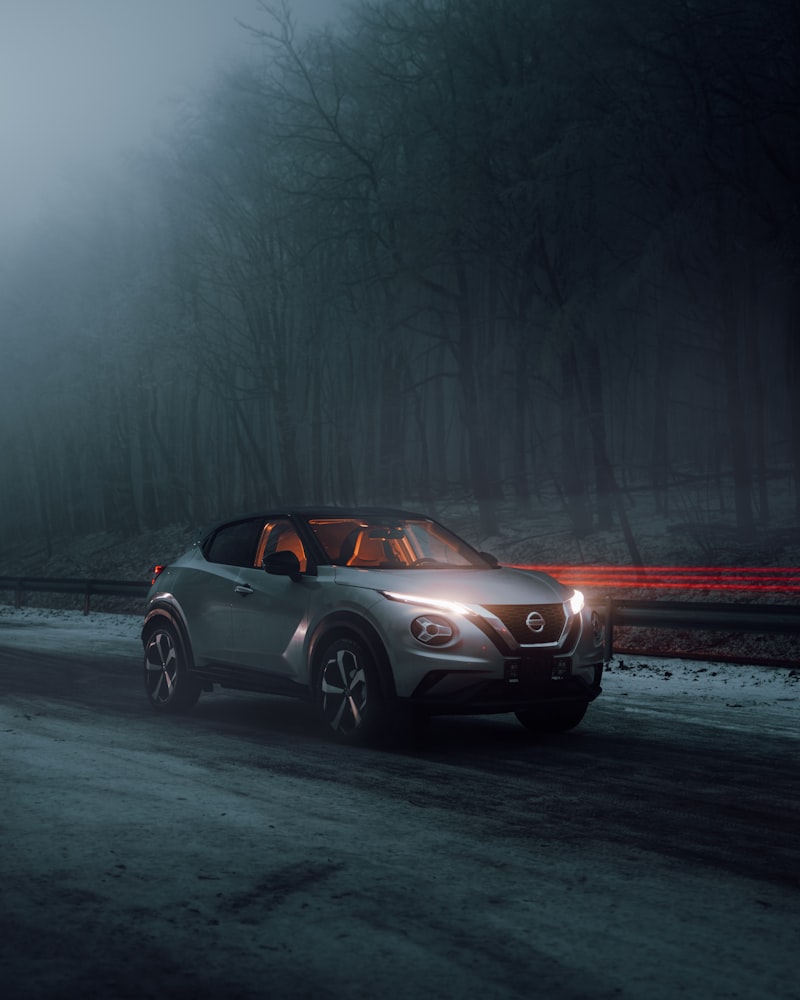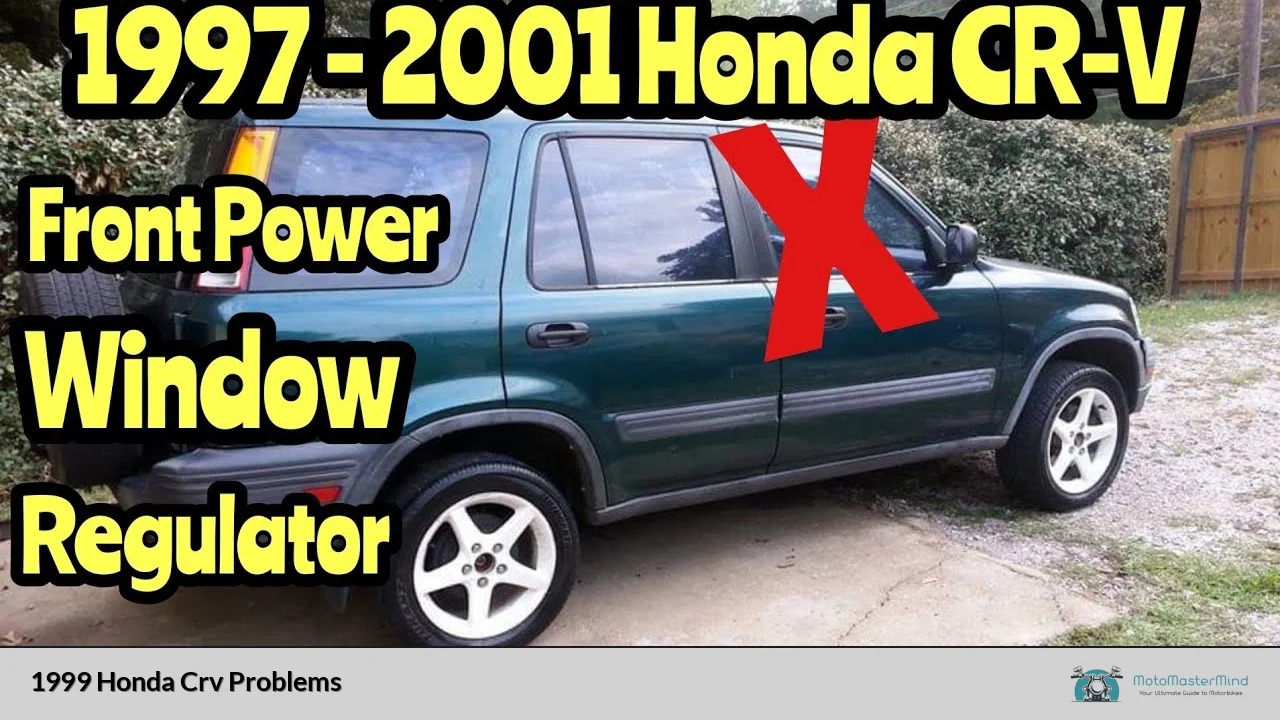Are you a proud owner of a 1999 Honda CR-V or considering buying one? It’s essential to be aware of potential problems that may arise with this popular SUV. In this article, we’ll explore some common issues faced by owners of the 1999 Honda CR-V and provide insights into addressing these problems effectively.

One prevalent problem reported by CR-V owners is engine stalling. Imagine driving down the road, and suddenly your vehicle comes to a halt. This frustrating issue can be caused by a faulty ignition switch or a malfunctioning fuel pump. If you experience frequent stalling, it’s crucial to have a certified mechanic diagnose the problem and replace any worn-out components promptly.
Another concern reported by 1999 CR-V owners is transmission failure. A failing transmission can manifest through delayed shifting, slipping gears, or even complete loss of power. This issue can result from worn-out clutch plates or a faulty torque converter. Regular maintenance, such as fluid checks and timely replacements, can help prevent transmission problems. Should you encounter any symptoms of transmission issues, it’s advised to consult a professional technician for diagnosis and potential repairs.
Furthermore, some owners have experienced issues with the CR-V’s air conditioning system. If you find that your AC isn’t cooling as efficiently as before, it could be due to a refrigerant leak, a failing compressor, or an electrical problem. To ensure optimal performance, it’s recommended to have your AC system inspected and serviced regularly. By addressing minor issues promptly, you can avoid costly repairs down the line.

Additionally, the 1999 Honda CR-V has been known to exhibit rust problems in certain regions. This issue typically arises in areas prone to harsh winter conditions or high humidity. Regularly washing and waxing your CR-V can help protect the paint and minimize the risk of rust formation. Applying rust-proofing treatments, especially to vulnerable areas, can offer additional defense against corrosion.

While the 1999 Honda CR-V is a reliable and popular SUV, it’s important to be aware of potential problems that may arise. Engine stalling, transmission failure, air conditioning issues, and rust problems are among the common concerns reported by owners. By staying proactive, conducting regular maintenance, and promptly addressing any emerging issues, you can ensure a smoother ownership experience with your 1999 Honda CR-V.
Unraveling the Reliability Puzzle: Common 1999 Honda CRV Problems Explored
Are you a proud owner of a 1999 Honda CRV? This iconic SUV has garnered a loyal following over the years, thanks to its practicality and reliability. However, like any vehicle, it’s not without its fair share of issues. In this article, we will delve into the commonly reported problems faced by Honda CRV owners from the 1999 model year.
One of the recurring concerns among CRV owners is the faulty air conditioning system. As the summer heat intensifies, you rely on your AC to keep you cool and comfortable during the drives. But alas, some 1999 CRVs have experienced issues with their AC compressors failing prematurely, leading to hot and stuffy rides. It’s crucial to have a trusted mechanic inspect your AC system regularly to prevent any unexpected breakdowns.
Another problem that has puzzled many CRV owners is the notorious transmission failure. Some have reported jerky shifting, slipping gears, or even complete transmission failure. This can be a costly repair, so it’s wise to keep an eye out for early warning signs, such as delayed engagement or fluid leaks. Regularly changing the transmission fluid and adhering to the manufacturer’s maintenance schedule can help prolong the life of your transmission.
The 1999 Honda CRV also had its fair share of electrical gremlins. Owners have complained about malfunctioning power windows, door locks, and even the dashboard instrument cluster. Intermittent electrical issues can be frustrating to diagnose and fix, but seeking professional assistance can save you time and headaches in the long run.
Furthermore, some CRV owners have dealt with rust problems, particularly in regions where road salt is used during winter. Rust can eat away at the body panels, compromising the structural integrity and overall appearance of the vehicle. Regularly washing and waxing your CRV, especially during the winter months, can help prevent corrosion and keep your ride looking sharp.
From Engine Woes to Transmission Troubles: The Saga of 1999 Honda CRV Issues
Ah, the legendary 1999 Honda CRV. While this compact SUV won hearts with its practicality and reliability, it wasn’t without its fair share of issues. Let’s dive into the captivating world of engine and transmission problems that plagued this beloved vehicle.
Picture this: you’re cruising down the road, enjoying the open air, when suddenly, a disconcerting noise emanates from under the hood. Engine troubles were not uncommon in the 1999 Honda CRV. Owners reported issues like excessive oil consumption, misfires, and even complete engine failure. These problems were often attributed to faulty piston rings and cylinder walls. It was as if the engine had a mind of its own, determined to keep drivers on their toes.
But wait, there’s more! As if engine woes weren’t enough, the transmission also had its fair share of troubles. Many CRV owners experienced transmission failures, slipping gears, and harsh shifting. The culprit? A flawed design that didn’t stand the test of time. It felt like battling against the tides, trying to keep the gears shifting smoothly.
Imagine the frustration of CRV owners who expected a smooth and reliable ride, only to be met with these challenges. It was like embarking on an epic quest, hoping to conquer the road, but facing unexpected hurdles along the way.
Despite these issues, the 1999 Honda CRV managed to retain a loyal fan base. Its versatility and practicality outweighed the occasional hiccups, and many owners still cherish their CRVs today. It’s a testament to the enduring spirit of this vehicle, a true survivor in the face of adversity.
Hidden Dangers Underneath: Investigating Safety Concerns in 1999 Honda CRV Models
Are you aware of the hidden dangers lurking underneath the seemingly harmless exterior of the 1999 Honda CRV models? In this article, we delve into the safety concerns that have plagued this particular vehicle. Buckle up and join us on this investigative journey!
One of the primary safety issues with the 1999 Honda CRV revolves around its airbags. Yes, those life-saving cushions designed to protect us in case of a collision. Unfortunately, for some CRV owners, these airbags have shown a tendency to deploy unexpectedly or fail to deploy altogether during accidents. Imagine the shock and potential harm caused by an airbag unexpectedly inflating while driving! It’s like being caught off guard by a surprise party gone terribly wrong.
Furthermore, another concern lies within the structural integrity of the CRV. Several reports suggest that the vehicle’s frame may be susceptible to rust and corrosion, particularly in regions with harsh weather conditions and excessive road salt usage. This weakened structure can compromise the car’s ability to withstand impacts, leaving occupants vulnerable to injury in the event of a collision. It’s like building a house on shaky ground—eventually, it’s bound to crumble.
Additionally, the 1999 Honda CRV has been plagued by complaints about faulty brakes. Picture yourself hurtling down the highway, only to discover that your brakes are unresponsive or prone to sudden failure. It’s akin to trying to stop a runaway train without any means of control.
Now, you might be wondering, “What about the fuel efficiency of these vehicles?” Well, unfortunately, that’s another area where the 1999 Honda CRV falls short. Compared to its contemporaries, this model tends to guzzle more gas than expected, a potential headache for environmentally conscious drivers and those seeking to save at the pump. It’s like having a marathon runner who gobbles up energy bars like there’s no tomorrow—it’s neither sustainable nor efficient.
Owners Beware: Persistent Electrical Glitches Plague 1999 Honda CRV
Are you a proud owner of a 1999 Honda CRV? Well, brace yourself because persistent electrical glitches can be a real headache for you and your beloved vehicle. It’s important to be aware of these issues to prevent any surprises down the road.
One of the most common problems faced by owners of the 1999 Honda CRV is electrical malfunctions. From flickering lights to a complete failure in the electrical system, these glitches can leave you frustrated and stranded. Imagine being stuck on the side of the road with no headlights or a dead battery – not a situation anyone wants to be in!
So, what are some of the specific electrical glitches that plague the 1999 Honda CRV? One notorious issue is the faulty ignition switch. This component is responsible for starting your car, but it has been known to malfunction, causing intermittent starting problems. You might find yourself turning the key multiple times before the engine finally roars to life. Talk about a frustrating experience!
Another common glitch involves the power windows. Many owners have reported issues with their windows getting stuck or refusing to roll up or down. This might not seem like a big deal at first, but imagine being unable to open the window on a scorching summer day or feeling trapped inside during a rainstorm. It’s definitely an inconvenience you’d rather avoid.
Furthermore, owners have also experienced problems with the vehicle’s electrical wiring. Over time, the insulation around the wires can deteriorate, leading to short circuits and erratic behavior in various electrical components. This can result in anything from malfunctioning dashboard instruments to non-functioning radio or air conditioning.
To address these electrical glitches, it’s crucial to have a trusted mechanic who specializes in Honda vehicles. Regular maintenance and inspections can help identify potential issues before they become major headaches. Additionally, staying updated on recalls and service bulletins from Honda can provide valuable information on known electrical problems and possible solutions.
If you own a 1999 Honda CRV, be prepared to deal with persistent electrical glitches. From faulty ignition switches to finicky power windows and wiring issues, these problems can disrupt your daily driving experience. By staying vigilant and proactive in addressing these concerns, you can minimize the impact of electrical malfunctions and keep your Honda CRV running smoothly for years to come.

